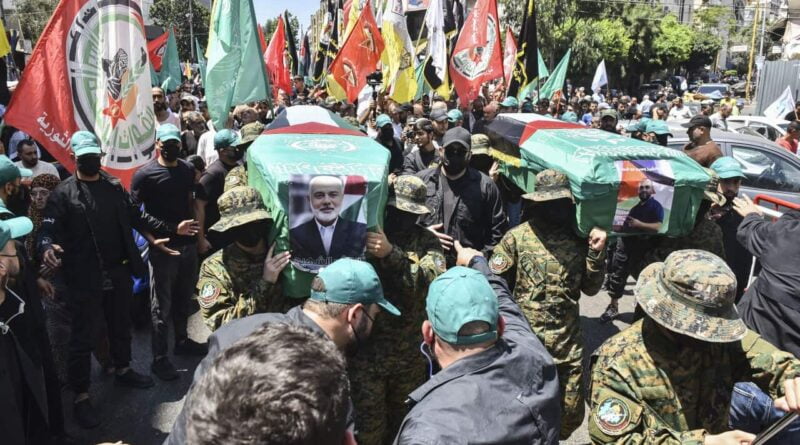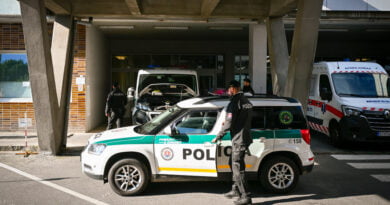Key Points
- US and allies have told Iran to “stand down” amid fears of an attack on Israel as soon as this week.
- Iran and Hezbollah have vowed revenge over the assassinations of key figures.
- Diplomatic efforts have intensified, with leaders calling for de-escalation and a ceasefire in Gaza.
The United States and its European allies called on Iran to “stand down” as fears mounted of an imminent attack on Israel that could spark an all-out war in the Middle East.
Tensions are , with the US rushing a missile submarine and an aircraft carrier group in a show of support for its key ally.
Iran and its Lebanese ally Hezbollah have vowed revenge for of the Palestinian group Hamas in Tehran, and of a .
International efforts to stave off an Iranian attack intensified, with US President Joe Biden and the leaders of France, Germany, Italy and Britain warning Tehran in a joint statement on Monday.
“We called on Iran to stand down its ongoing threats of a military attack against Israel and discussed the serious consequences for regional security should such an attack take place,” they said.
The White House warned that a “significant set of attacks” by Iran and its proxies was possible as soon as this week, saying that Israel shared the same assessment.
, German Chancellor Olaf Scholz and British Prime Minister Keir Starmer both called on Iranian President Masoud Pezeshkian to urge de-escalation.
But Pezeshkian said Monday his country has the “right to respond to aggressors.”
Hamas political chief Ismail Haniyeh had been in Tehran for the new Iranian president’s inauguration last month when Haniyeh was killed in an attack that Iran has blamed on Israel.
Israel assassinated Hezbollah commander Fuad Shukr in Beirut a day earlier, leaving the region on edge.
Portraits of slain leaders, Ismail Haniyeh of the Palestinian militant group Hamas, Iranian Quds Force chief Qasem Soleimani (C), and Hezbollah senior commander Fuad Shukr in Beirut, Lebanon. Source: Getty / Ibrahim Amro
‘No further time to lose’
Israeli military spokesman Rear Admiral Daniel Hagari said his country was “ready to foil any threat in real time” but added that he was “not familiar” with reports that Iran was expected to launch an attack in the next 24 hours.
Israel’s Defence Minister Yoav Gallant said the country had strengthened defences and organised “offensive options” as “threats from Tehran and Beirut may materialise.”
Washington and the four European nations meanwhile intensified their calls for a ceasefire in Gaza, regarding the conflict sparked by Hamas’ October 7 attack on Israel as the root cause of the tensions in the Middle East.
They backed a call by Biden and the leaders of Egypt and Qatar for renewed talks between Israel and Hamas this Thursday, “and stressed there is no further time to lose.”
They also called for “unfettered” delivery of aid to devastated Gaza.
The pressure to bring an end to the fighting in the Gaza Strip and for Hamas to release its hostages came as the militant group’s armed wing said it had killed one Israeli captive and wounded two more in “incidents”.
The Ezzedine Al-Qassam Brigades said in a statement that two of its fighters “assigned to guard” the hostages had fired at them in “two separate incidents” and that a committee had been formed to investigate.
Hamas has urged mediators to implement a truce plan earlier presented by Biden instead of holding more talks.
But Israel has accepted the invitation from the United States, Qatar and Egypt to send negotiators.
“The reason we’re doing that is to finalise the details of the implementation of the framework agreement,” Israeli government spokesman David Mencer told a news conference.






